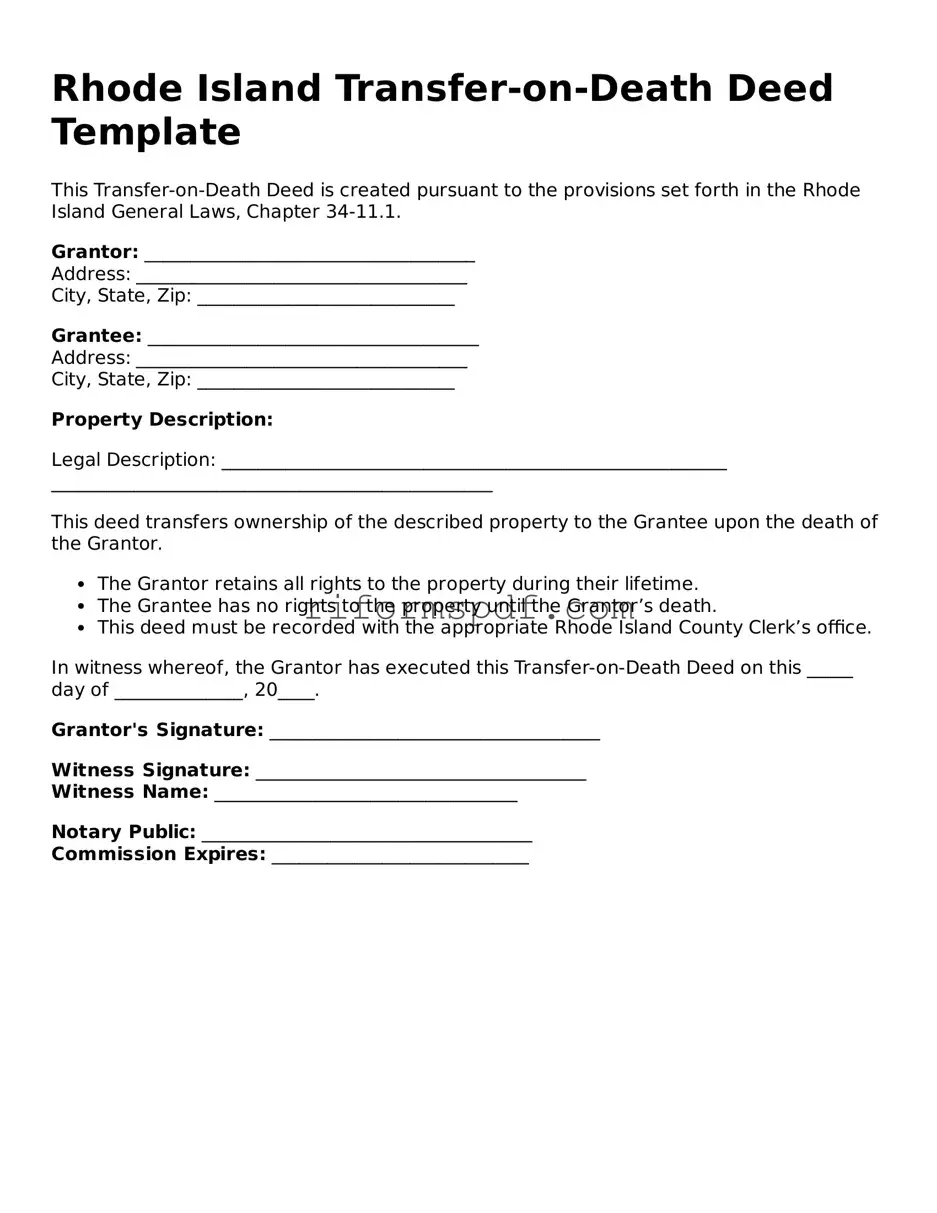Printable Transfer-on-Death Deed Form for Rhode Island
The Rhode Island Transfer-on-Death Deed is a legal document that allows property owners to designate beneficiaries who will receive their real estate upon the owner's death, bypassing the probate process. This deed provides a straightforward way to transfer property, ensuring that loved ones can inherit without the delays and costs typically associated with probate. Understanding the nuances of this form is essential for anyone looking to simplify their estate planning in Rhode Island.
Launch Editor

Printable Transfer-on-Death Deed Form for Rhode Island
Launch Editor
Finish the form now and be done
Edit Transfer-on-Death Deed online and skip the paperwork.
Launch Editor
or
⇓ PDF Form
